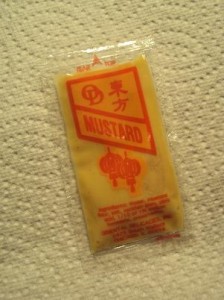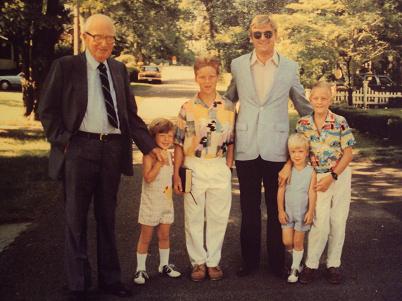In the news recently a mother from Alaska was put on trial for using hot sauce to discipline her son. She was found guilty of child abuse because she video taped the episode to get on a TV show entitled “Mommy Confessions.”
I haven’t watched the video and don’t have an opinion about her tactics but must confess that years ago I initiated several hot sauce episodes at our house, too. I was making a point about unacceptable language, trying to fit the punishment to the crime as Dr. Dobson had taught us. I did let the offender run to the bathroom immediately to spit and swish, but a drop of hot sauce was always effective toward improved speech and usually didn’t need to be repeated.
Last night we ordered Chinese food for dinner, expecting to serve 10 or so, and in the bottom of our boxful of food was an abundance of sauce packets: sweet, soy and hot. Holding up one of the yellow packets, I said to Nelson, “Do you recognize this hot sauce from your childhood?”
“Yeah,” he said, laughing. “But I love it now.”
His comment got us talking. Was the “yucky” childhood taste of hot sauce a precursor to developing a fondness for it later?
As we ended the conversation he said, “I wonder if you drank enough poison as a kid, you’d eventually get a taste for it.”
I thought of the first time someone tastes alcohol, a poison of sorts. It’s often bitter and unpleasant. But a young person who considers beer drinking to be sophisticated will keep trying, gradually gaining a liking for it. It may lead them into alcoholism, and in a sense Nelson’s question about getting a taste for poison has its answer.
The same principle, though, can work the other way, too. Developing a taste for something positive can start with forced bits that seem negative. Take, for example, prayer or reading the Bible. For new Christians, neither is easy. We wonder whether or not our prayers are getting through, and Scripture seems confusing. But we want to obey God, so we grit our teeth and keep trying.
One day we see a prayer answered or realize a biblical passage has touched our need, and we want more. We’re developing a taste for something that was distasteful in the beginning. Eventually prayer and Scripture can become addictions of the highest sort.
Of course it’s important to put the right things in front of our children, but the same is true for us. It’s probably a good idea to be cautious about new experiences, knowing small tastes can grow into demanding addictions.
I’m not sure what will happen to the newsworthy hot-sauce-mom, but since I’ve made a true confession in this post, the authorities may come after me, too.
“Ships, though they are so great and are driven by strong winds, are still directed by a very small rudder.” (James 3:4)



